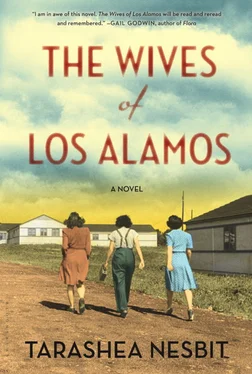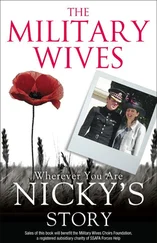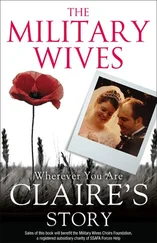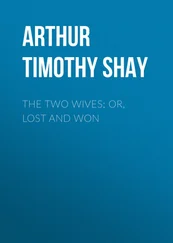WE CHEERED. WE shuddered. We waited. The Japanese had not surrendered.
AT LUNCHTIME A few days later, we heard a second bomb was dropped, this time over the city of Nagasaki. How many bombs would it take until Japan gave up?
WE KEPT THE radio on during dinner and one night as we ate pork chops we heard President Truman read the Japanese surrender. Emperor Hirohito told his subjects: The enemy has begun to employ a new and most cruel bomb, the power of which to do damage is, indeed, incalculable, taking the toll of many innocent lives. Should we continue to fight, not only would it result in an ultimate collapse and obliteration of the Japanese nation, but also it would lead to the total extinction of human civilization.
WE JUMPED UP and hugged one another and knocked over our children’s glasses of milk. Instead of scraping the plates into the garbage and washing them, we opened the back door and flung them out into the dark night, and they were flying saucers crashing against the shed. A group shouted over the PA system: The War Is Over! We cheered too, but some of us thought privately quite the opposite. Perhaps this was a new scale of human cruelty.
WILLIE HIGGENBOTHAM TOOK out his accordion and began playing, and he led the way through the unmarked, muddy streets. We made a line behind him, and people joined in, and we became a crowd of men and women and children smashing garbage cans and hooting, Hooray!
THE CHEMISTS AMONG us made fireworks to celebrate our victory. We had never seen our whole town so unified, so drunk, so elated, and so loud.
WE WENT FROM house to house until six a.m., we drank and danced, and as day broke we returned home still glowing with the achievements of our husbands and said affections by way of insult: You can build a bomb but you cannot fix a leaky faucet!
THE NEXT DAY we gathered outside the commissary and waited our turn to read the Santa Fe New Mexican . The pages became rumpled and misshapen from all of the readers, and each woman’s fingertips were blotted with ink, which made smudges on our cheeks. Headlines called the bomb a Tool to End All Wars .
FROM THESE ARTICLES we learned information about our town we did not even know ourselves, like how many families were here exactly. Six hundred and twenty, which made the total population in the thousands, and the ratio of civilians to military personnel three to one. How did they know this, one day after the second bomb was dropped, when we, who had lived here three years, did not even know these things?
WE WERE IDENTIFIED on countrywide broadcasts: At Los Alamos, high in the mountains north of Santa Fe, scientists worked to build this bomb. And they named our husbands: Oppenheimer , Segre , Fermi , Bohr , Bradbury , and several others. These were our names, too. How did they know it all so quickly? Where did they get our names? How could they describe the Hill so exactly while reporting from the coast? We went from being concealed to exposed overnight.
AT A TOWN meeting, the Director stood on a wooden platform and looked out into the crowd, a group that had grown from a handful of families to over a thousand people. His pressed suit hung off the sharp edges of his shoulders, his head looked small beneath his wide-brimmed hat, and it was disarming to see him without a cigarette. He was bony, even thinner than before, though we did not think that was possible. He was as slender as a Weimaraner, but he seemed calm.
HE LEANED IN to the microphone, and we heard his voice through the tinny speakers. He began: I don’t have anything to say that will be of an immense encouragement . The thing we made really arrived in the world with such a shattering reality and suddenness that there was no opportunity for the edges to be worn off. If you are a scientist you believe that it is good to find out how the world works; that it is good to find out what the realities are; that it is good to turn over to mankind at large the greatest possible power to control the world and to deal with it according to its lights and its values.
WE FELT ASHAMED, we felt proud, we felt confused. He said, One always has to worry that what people say of their motives is not adequate . We cannot forget our dependence on our fellow men . And he said, finally, A day may come when men and women will curse the name Los Alamos .
HE WAS NOT booed off the stage. We looked around to the faces near us and saw, by who nodded, who smiled, who looked away, who had their arms over their chest, just who shared our feelings.
THE PHARMACY WAS out of medicine for headache, sleeping, and nausea. We were pregnant and wanted something for morning sickness but the nurse said, Sorry, Mrs. Smith, you’ll have to come back next week when we get a new shipment. We slept little and argued more with our husbands. Or we slept little because we stayed up late in bed with our husbands.
OUR FRIENDS BEGAN leaving; we threw good-bye parties each week and wondered when it would be our turn. We thought the dry air and frequent sun had aged us and we worried what we would look like to our friends and family when went back to civilian life, to the college towns and cities we came from.
THE BRITISH THREW a final party—we ate pork pie and peach trifle, we drank red wine and giggled as everyone toasted the Queen. Though it occupied our thoughts, many of our husbands did not talk to us about the ethics or morality of what they had done.
OUR HUSBANDS SLEPT late and stayed in bed reading. We came into the bedroom at noon and told them we had bought apples, potatoes, chicken, and it was hailing. They looked up and said, Okay , and looked back down at the paper.
OR WE REMAINED in bed with them, talking through the night to make up for the time when we could barely speak. We learned there was a great argument about the bomb: many of our husbands had not wanted to release it where there were people, or had wanted to pretend they could not make it at all, especially after Germany surrendered. Should we try not to succeed? an organizing husband asked, saying there was enough time for them to join hands in asserting that the bomb was not possible to build. Another husband replied, Just drop it on Home Island to show Russia what we can do . Were there murmurs in the crowd? Was there a pause? The Director spoke: Let’s just finish it and give it to the UN . Leave science to scientists and politics to politicians .
WHEN TALKING TO our husbands we cried, yelled, kissed, and apologized. Or we did not, because we had grown accustomed to the new silence between us, and we no longer knew how to speak to each other candidly. Our husbands said, The world knowing the bomb exists is the best hope for peace. We felt personally responsible and lost our appetite. Or we could finally eat.
SOME OF US felt more distant from the group; there were those of us who felt far away from the cheering and there were those of us who were happy to be a part of it. Because we disagreed with one another, over coffee, over tea, when in line at the commissary we would whisper to ourselves, There’s Esther , and recall her saying, Our husbands lied to us , or, There’s Laura , and think of her saying, We didn’t start the war, we finished it .
WE LEARNED tube alloy was the code name for plutonium. On the way to Santa Fe we shouted Plutonium! Uranium fission! and all the other words we had not been able to say until now. Our children sang Atomic Bomb, Atomic Bomb to the tune of O Christmas Tree though it was only September. September and the Japanese had signed the final Instrument of Surrender aboard the battleship USS Missouri . We felt a part of something, and the guard shining the flashlight in the backseat of the car, which was once an annoyance, or a fear, had now become a comforting indication that we were home.
Читать дальше












